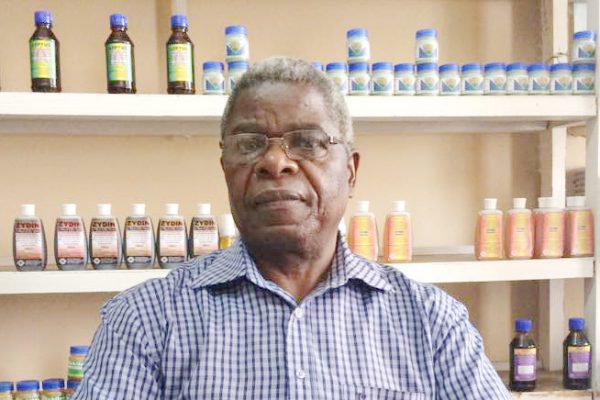
Herbalist and African herbal medicine researcher Godfrey Mwerenga says African renaissance should embrace African traditional medicine, which had been branded “evil” by colonial governments.
By Our Correspondent
Mwerenga said under colonialism, the African culture was under threat, which saw the African way of life being deemed evil under the guise of wrong Bible interpretation.
He said developments in the western medical field have also seen a paradigm shift towards the use of herbal medicine due to the limitations in research, side effects and the ballooning costs in drugs.
“The Bible is very clear in verses which encourage people to use herbs for their well-being and it was only after independence that most Africans realised that they were hoodwinked,” Mwerenga told The Standard Style.
“Go to Genesis, Ezekiel and Revelations in the Bible and it shows that the devil didn’t create anything, but it’s God who created the herbs for the well-being of mankind.”
“If you look at the western world, there has been a resurgence in the use of herbal medicine due to the side effects of chemical drugs.”
Mwerenga said there had been a growing number of cases of drug-resistant diseases and lack of curative modern therapies for many chronic diseases.
- Chamisa under fire over US$120K donation
- Mavhunga puts DeMbare into Chibuku quarterfinals
- Pension funds bet on Cabora Bassa oilfields
- Councils defy govt fire tender directive
Keep Reading
“The question is where is the western world getting the herbal medicine? It is in Africa because Africa has tropical and subtropical climatic conditions, which gives plants medicinal properties. If you look at the powerful western countries like the United States, which produces most of the drugs, fewer chemical drugs are being produced and they have shifted focus to herbal medicine.”
Mwerenga, who has been working as a pharmacist for 37 years, said the renaissance in African traditional medicine should translate into improved health systems on the continent.
He said it was high time African countries turn plants into assets for national economic prosperity just like any other natural resource that Africa is endowed with.
“Africa has so many natural resources like minerals, tourists attractions but very few have realised that Africa can develop through plants for medicinal purposes,” he said.
“If we encourage more research and packaging of herbal medicine, this can immensely help our health system as well as the national budget as less money will be used in importing drugs.
“We should encourage local universities to have botany or bio-prospecting research departments which work in collaboration with local knowledge systems on herbs. By doing this, we also create employment as this gives birth to herbal industries.” Mwerenga said African identity could only be determined by Africans using their own systems passed from one generation to another as well as God-given resources.
“We have chronic diseases like cancers which have now all of a sudden become major killer diseases because of a negation of the African nutrition and value of our medicine. Cancer has always been curable in African traditional culture through our own chemotherapeutic medicine,” he said.
According to the World Health Organisation, between 70 and 90% of the population in Africa, Asia, Middle East and South America use traditional medicine for healing purposes.
The traditional healing industry is a growing industry in China, with the country raking in $83 billion in sales of herbal medicine in 2012 alone. The global sales of traditional medicine and supplements is expected to reach $115 billion by year 2020, with China leading the sales.
Africa has the largest source of herbs in the world with 216 million hectares of forests with more than 45 000 different species of plants with a potential of being used as medicine. Already, more than 5 000 of these species have been proven to be healing plants.











